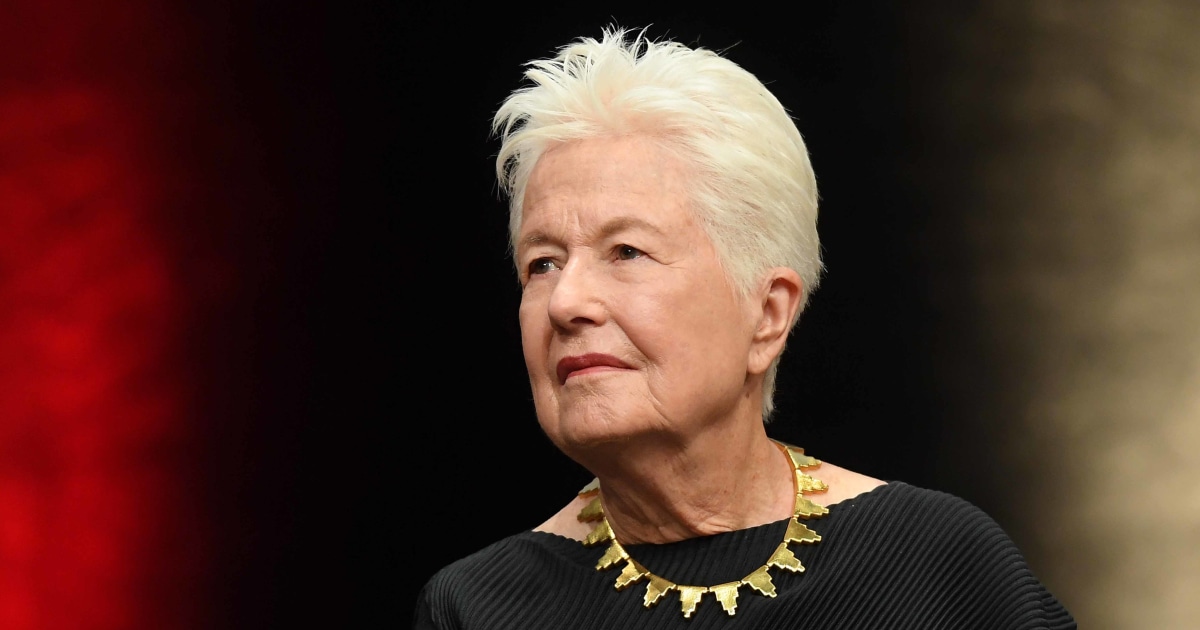Trailer for the movie "Sex-Camera-Power" (yes docu)
International Women's Day that took place today (Wednesday 8.3) is one of the most colorful days in the calendar of the world in general, and of the film industry in particular.
For one day, this industry flaunts Instagram posts and special broadcast strips, then goes back to sura—that is, ignoring films made by women and their perspective.
An example of this will come at the Oscar ceremony this Sunday.
The winners of Best Film, Best Animated Feature, Best International Film and probably Best Documentary will be men.
The data is even more dramatic if you look at it broadly.
Of the 591 titles that have been nominated in the Best Picture category throughout the history of the Oscars, only 19 of them were by women directors, which represents their share of filmmaking in Hollywood, and in fact in every other industry - including us.
What are the consequences of this?
There will be those who say that dealing with these numbers is nothing more than progressive trolling.
"Brainwashing: Sex-Camera-Power", Nina Manx's docu-work available exclusively on yes VOD, reveals a different truth through clips from hundreds of more and less contemporary films.
He describes how the male gaze and male dominance behind the camera usually lead to the objectification and diminution of the woman, of her body and soul, and of the female experience.
"I had no illusions about the representation of women in Hollywood cinema," says Menks, a Jewish-American whose parents are originally from Israel.
"This film was not a research paper - I knew the conclusions before I approached it. However, to watch hundreds of films at once and understand how women are presented in them - it was like a punch in the stomach. There is a difference between watching one film, and between reading an academic article, and reading an essay So critical."
A Jewish-American whose family is from Israel.
Director Nina Manx (photo: yes doku)
Speaking of academic articles - researcher Laura Mulvey wrote a canonical article on the male gaze back in the seventies.
From your experience, does the audience watching the film know her research?
"The film appeals to all of them. It does not appeal to ten doctoral students in the gender department. I have met viewers who have read Mulvey and those who have not. I have also met 19-year-old viewers and 85-year-old viewers. In both cases, the film blew their minds. I think that because of the Instagram culture, young women have a special need for the film Such. In a way, social media is even worse than cinema. Young women came to me crying and said - Instagram and Tiktok made us feel something we didn't know how to express in words, and now we know."
"There is a phenomenon called 'self-adornment.' to value themselves less, and suffer more from eating disorders and dysmorphia."
More in Walla!
The director of "After the Sun" explains how she created the talked about and exciting film of the year
To the full article
19 girls and 85 girls. From "sex-camera-power" (photo: yes doku)
"Brainwashing: Sex-Camera-Power" premiered at the Sundance Film Festival and has since received rave reviews, but has also been attacked.
"There are all kinds of reviews," Manx says.
"There are those who come and say, 'We already knew it was like this.' Well, then you knew - the film is not for you, there are also people who did not know. On the other hand, there are those who are unable to deal with what the film shows and what it evokes in them, so they kill the mission And they attack me. There are also arguments like 'girls just want to have fun'. I mean, cinema is entertainment and a spectacle and I come and ruin their experience."
"Look, I'm not the sex police or the movie police. I don't write prescriptions. I'm just stating what the situation is and trying to raise awareness of something. It's important to me that people be aware. From here on - let them do what they want. As someone who spent 15 years in therapy, I believe that if you You take a particle that was in the dark for a long time, but then shine light on it - then something in the particle changes. It's a scientific law.
One of the films you oppose is "Wonder Woman" starring Gal Gadot.
It is interesting, because the leading French researcher Iris Berry, who published a groundbreaking book this year on the "female gaze in cinema", actually sees "Wonder Woman" as an example of a film with an empowering and dynamic female gaze.
"First of all, when I saw the movie I thought it had a hidden Zionist message, but maybe that's just my paranoia. Besides, I think the main character is presented in a sexual way. She's dressed like a baby doll and made to look perfect. When you have a female protagonist in a Hollywood movie, she Usually an object. Harrison Ford is 80 years old and he's going to star in 'Captain America' and 'Indiana Jones.' Can you imagine casting an 80-year-old actress to play Wonder Woman? Just saying it sounds like a joke. A superheroine must To be young and beautiful. With all due respect, Gal Gadot was a model and not an actress when she was cast to star in Hollywood. She is considered the pinnacle of female beauty, and if she was eighty years old, she would never have been allowed to star in this film."
A hidden Zionist message?
Gal Gadot in "Wonder Woman" (Photo: Globus Group)
The film actually moves between two focal points - the screen, on which the film clips are projected, and the director who stands next to it and talks about what we see on it.
"Look, I lived this shit. This shit hurt me and still hurts me on many levels. It's ingrained in my body, so I wanted my body to be in the movie," Menkes says when I ask her about it.
"There are films where you hear the director's voice but you don't see her. Some of these films are amazing, but it didn't fit this time, because the film deals with the question - what does it mean to live in a woman's body, so you can't separate the voice from the body. This is not an abstract film , but physical".
As every decade, the leading magazine Sight and Sound recently published its comprehensive survey to determine the best film of all time, and this time the results were historic: "Jean Dillman" by Chantal Akerman climbed to the top for the first time, making it the first film directed by a woman in this place.
Menks was among the members of the rather limited forum that participated in the voting, and also chose the winning film.
"It's a tremendous and rare film - a perfect expression of an emotional state," she explains the choice.
"It's a film that subverts the expression, yet does it in a sophisticated and refined way. All the emotions bubble up in it from the inside. It's a hardcore, radical and feminist film, and I don't know why exactly it broke through the wall of hatred for female directors. It's exciting to think about the recognition that this film is getting if Think about all the female directors who oppressed them. The film is close to my heart as a woman and as a filmmaker, and certainly as a filmmaker who oppressed her."
She also voted for him.
From "Jean Dillman" (photo: screenshot, screenshot)
Towards the end of the film you show clips from films that present the female gaze, and there is also an image from Keren Yedaya's "Light" starring Dana Ivegi.
"My family is from Israel, I spent a lot of time in Israel myself and also directed films there, so it makes sense that I present an Israeli film. Furthermore, I love 'Or' and use it in my classes. I was looking for films by women that have the image of a woman looking at the camera. To begin with, there is no A lot of them, and even when there are - often the woman is a 'baby doll'. I wanted a strong woman who looks at the camera, not a doll, and 'Or' has that."
What films would you recommend to those who read this interview and want to watch good examples of the female gaze in cinema?
"Besides 'Jean Dillman' and 'Light'? 'Portrait of a Girl on Fire' by Celine Siama, 'Passerby' by Anies Varda, 'Wanda' by Barbara Luden. This is only a partial list of course."
culture
Theater
Cinema news
Tags
Jean Dillman
Wonder-woman
Gal Gadot
Oscar
feminism
International Women's Day
yes Doku















